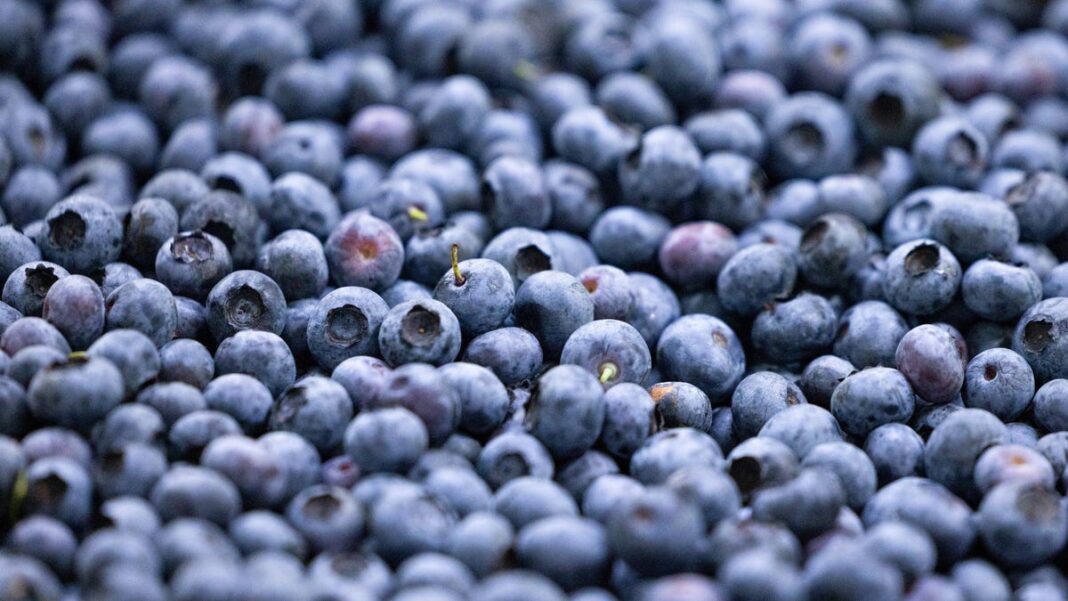Blueberries are often referred to as a ‘superfood.’ Here’s why.
The global demand for blueberries continues to be robust, showing signs of growth in popularity. A recent study estimates that the blueberry market was worth $2.65 billion in 2023, with projections suggesting it could exceed $4 billion by 2029.
People appreciate blueberries for various reasons, including their long shelf life, natural sweetness, and versatility in food preparation, according to Dr. Carolyn Newberry, an attending physician and nutrition scientist at Weill Cornell Medical Center in New York.
Blueberries are often blended into smoothies and are a favorite topping for Greek yogurt, pancakes, cereals, oatmeal, waffles, and salads. They are also a popular ingredient in baked treats, such as muffins, scones, cookies, breads, pies, cheesecakes, and cobblers.
Moreover, blueberries are convenient to carry, making them ideal for quick meals on the run, as noted by Caroline Susie, a registered dietitian and national spokesperson for the Academy of Nutrition and Dietetics. “Blueberries are also nutritional powerhouses,” she adds.
What are blueberries?
Blueberries belong to the Ericaceae family, which includes other fruits like huckleberries, cranberries, and lingonberries, along with more than 4,000 flowering plant species.
These berries grow on blueberry bushes in warm, humid locations where they receive at least six hours of direct sunlight daily, although some types can tolerate cooler climates. China stands as the leading producer of blueberries, followed by the United States and Peru.
In the U.S., the primary varieties of blueberries include northern highbush, southern highbush, rabbiteye, lowbush, and half-high types.
Are blueberries beneficial for your health?
Regardless of the type, blueberries offer numerous health benefits. According to the U.S. Department of Agriculture, a 100-gram serving of blueberries (around 1 to 1.5 cups, depending on size) contains biotin, fiber, vitamin K, manganese, calcium, and over 8 milligrams of vitamin C, along with smaller amounts of protein, iron, phosphorus, and potassium.
Newberry emphasizes the importance of manganese in maintaining strong bones, and the role of vitamin C as a powerful antioxidant that aids in healing and reduces illness risk. She also points out that blueberries are rich in vitamin K, which is beneficial for blood clotting in the event of injury.
Another group of beneficial antioxidants found in blueberries is anthocyanins, which are linked to improved brain function and motor skills.
Additionally, blueberries are high in fiber—about 4 grams per cup—which helps slow digestion, making them friendly for blood sugar levels, as noted by Susie. Their fiber content contributes to feelings of fullness, combined with their low-calorie count (only 64 calories per 100 grams), making them a good option for healthy weight management.
Is it safe to eat blueberries daily?
Despite their many health benefits, some individuals should moderate their blueberry intake. People with sensitive stomachs or digestive disorders like irritable bowel syndrome might experience discomfort such as stomach pain, constipation, or cramping if they consume too many blueberries. Allergic reactions, such as hives and swelling, can occur for those with food sensitivities related to the Ericaceae family.
Moreover, due to the vitamin K content in blueberries, Newberry advises that individuals on certain blood-thinning medications should consult their doctor regarding safe consumption levels. Blueberries may also interact with cholesterol-lowering medications.
Additionally, blueberries can be pricey during off-seasons, as noted by Newberry. However, frozen blueberries are available throughout the year, providing a cost-effective alternative that can be purchased in bulk and stored conveniently.

